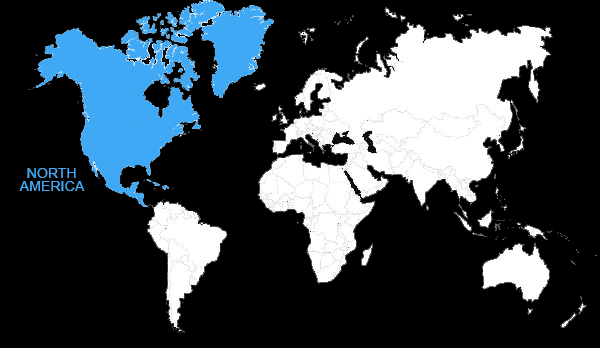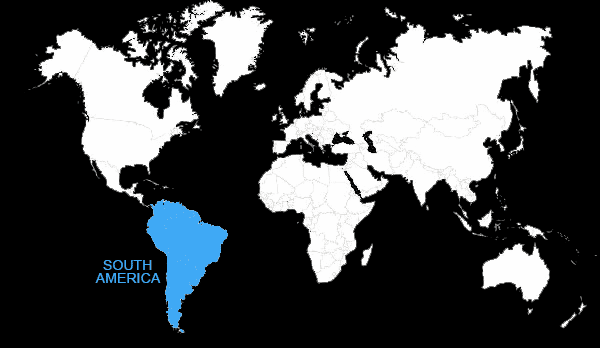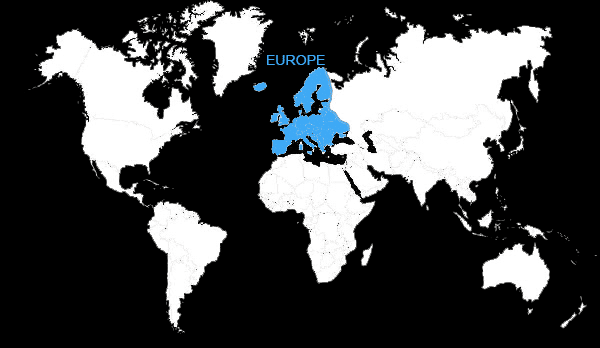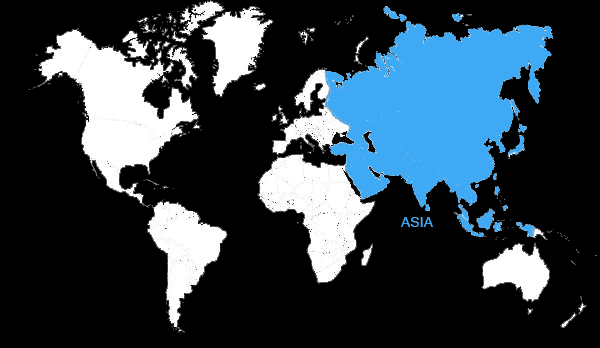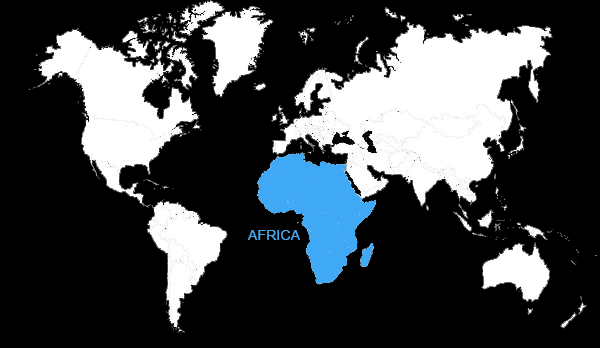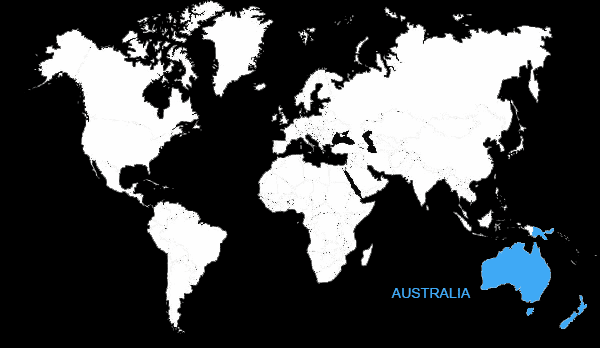Celtic FC Tryouts
Celtic FC is a Scottish professional football club based in Aberdeen, Scotland. The club currently plays in the Scottish Premiership, the country’s highest football league in Scotland.

Celtic FC Youth Development System
A successful player starts from within. At the Celtic FC Academy, our objective is to create a world-class academy that produces the next generation of Champions League players. Everyone within the Academy is expected to live by our 4 principles, which are: RESPECT, COMMITMENT, INTEGRITY, and SUPPORT.
Celtic FC Academy Pathway
The Celtic Youth Academy gives young players the support and development of the skills required to become professional footballers.
SINCE 2000/01:
- 51 players have made the first team
- 1 in 3 have become professional footballers
- 19 have played in the UEFA Champions League
- 41 have become full internationals
The Celtic FC Academy has produced some of the finest footballers over the last 20 years, playing for the Club across a variety of levels including the Scottish Premiership, Europa League and Champions League. Here is a selection of those who’ve made it.
 JAMES FORREST- Made his Celtic debut in May 2010.
JAMES FORREST- Made his Celtic debut in May 2010.
– 8 League titles, 5 Scottish Cups and 5 League Cups
– Senior Scotland debut, May 2011
 CALLUM MCGREGOR- Made a scoring Celtic debut in July 2014
CALLUM MCGREGOR- Made a scoring Celtic debut in July 2014
– 5 League titles, 3 Scottish Cups and 4 League Cups
– Senior Scotland debut, November 2017
 MIKEY JOHNSTON- Celtic debut in May 2017
MIKEY JOHNSTON- Celtic debut in May 2017
– A Scottish Premiership, League Cup and Scottish Cup winner
– Has represented Scotland at Under-19s and Under-21s level
 KIERAN TIERNEY- 102 appearances for Celtic, scoring five goals
KIERAN TIERNEY- 102 appearances for Celtic, scoring five goals
– Scotland international
– 4 League titles, 2 Scottish Cups & 2 League Cups with Celtic
– Graduate of the St Ninian’s/Celtic development programme
– Moved to Arsenal in 2019 for £25m
 SHAUN MALONEY- 158 appearances for Celtic, scoring 39 goals
SHAUN MALONEY- 158 appearances for Celtic, scoring 39 goals
– 47 caps for Scotland, scoring 7 goals
– Also played for Villa,Wigan, Chicago Fire & Hull City
– Appointed Under 20s Coach at Celtic in 2017
– Joined the Belgium coaching staff in 2018
 AIDEN MCGEADY- Made 185 appearances for Celtic, scoring 31 goals
AIDEN MCGEADY- Made 185 appearances for Celtic, scoring 31 goals
– Joined Spartak Moscow in 2010 for £9.5m
– 93 Caps for Ireland, scoring 5 goals
– Played at the 2012 & 2016 Euros
– Also played for Everton, Sheffield Wed, Preston, Sunderland & Charlton
 CHARLIE MULGREW- 134 Celtic appearances, scoring 20 goals
CHARLIE MULGREW- 134 Celtic appearances, scoring 20 goals
– 5 league titles & 2 Scottish Cup medals with Celtic
– Scotland international
– Also played for Dundee Utd, Wolves, Southend, Aberdeen, Blackburn & Wigan
 JOHN KENNEDY- 28 appearances for Celtic, scoring 1 goal
JOHN KENNEDY- 28 appearances for Celtic, scoring 1 goal
– 2 League titles as a player with Celtic
– Also played for Norwich City
– Currently Celtic Assistant Manager
 STEPHEN MCMANUS- 150 appearances for Celtic, scoring 17 goals
STEPHEN MCMANUS- 150 appearances for Celtic, scoring 17 goals
– 26 caps for Scotland, scoring 2 goals
– 3 League titles, 2 Scottish Cups & 2 Leagues Cups with Celtic
– Currently Celtic Academy’s Reserve Team Coach
 DARREN O’DEA- 49 appearances for Celtic, scoring 4 goals
DARREN O’DEA- 49 appearances for Celtic, scoring 4 goals
– 20 Republic of Ireland caps, scoring 1 goal
– 2 league titles, Scottish Cup & League Cup medals
– Scored the winner in 2009 Scottish League Cup Final
– Currently Celtic Academy’s U18s Coach
Academy Frequently Asked Questions
Q. Which age-groups do the Celtic FC Academy cover?
A: As well as the Celtic Reserves team, there are 4 Academy strands:
- Professional Academy (Under 18s)
- Intermediate Academy in partnership with East Dunbartonshire Council (Under 13s, 14s, 15s & 16s)
- Junior Academy (Under 10s, 11s & 12s)
- Development Centres (5 years old and above)
Q. How do children get trials the Celtic FC Academy?
A: The Academy does not offer trials. We have a team of scouts who are committed to finding the next generation of players via various boys’ clubs and school football teams throughout Scotland and Ireland.
Q. Where and how often do the Celtic FC Academy teams train?
A: Junior Academy and Under 13s teams
Train 3 times per week at Barrowfield, which is 5 minutes from Celtic Park.
Intermediate teams (Under 14 – Under 16)
Train at our state of the art Lennoxtown complex or St Ninian’s High School, 7 times per week.
Under 18s
Train at Barrowfield and Celtic Park 9 times per week over 5 days.
Development centres
Based in Glasgow (Toryglen), Grangemouth (Little Kerse) and Irvine (Circuit).
Q. What do Celtic FC Academy training sessions involve?
A: Understandably, each age range has a different approach to training, however the overall Academy philosophy is to build up each person as an individual and then as a player.
This is achieved in a number of ways, from individual consultations, assessments and development programmes, to the more technical and physical elements of training, such as pitch based physical conditioning, possession-based activities and tactical organisation.
Q. Where do the Celtic FC Academy teams play?
A: Cup competitions
Begin from the age of 16, with league football commencing when boys join the U18s team.
Competitive matches
Take place at Lennoxtown and Barrowfield.
Tournaments abroad
Children also compete in many tournaments abroad including visits to Holland, France and Germany. All of which are funded by the Academy.
Q. How is the Celtic FC Academy Funded?
A: We are partially funded by Celtic Pools, with proceeds from this and the Paradise Windfall draw, given to support the Academy.
This funding allows children the opportunity to train with little financial support required from parents, allowing each youngster an equal opportunity to succeed.

EXPLORE MORE CLUBS!
Explore more professional clubs by continent.
Celtic FC History
Celtic Football Club was formally constituted on November 6, 1887, at a meeting held in St. Mary’s church hall in East Rose Street (now Forbes Street), Calton, Glasgow, by Irish Marist Brother Walfrid. The meeting was held with the purpose of alleviating poverty in the East End of Glasgow by raising money for a charity that Walfrid had founded, the Poor Children’s Dinner Table. Celtic Football Club was named after the Irish Marist Brother Walfrid, who wasWalfrid’s decision to establish the club as a way of fund-raising was in large part inspired by the example of Hibernian, which was formed out of the immigrant Irish population a few years earlier in Edinburgh. Walfrid’s move to establish the club was primarily inspired by the example of Hibernian. At the same gathering, Walfrid offered his own recommendation of the name Celtic, which he pronounced as “Seltik,” with the intention of reflecting the club’s Irish and Scottish heritage. The name was accepted. The Bhoys is the official moniker that has been given to the club. According to the press office of Celtic Football Club, the newly formed club was known by many as “the daring boys” when they first started playing together. The first recorded instance of this variant spelling was on a postcard published in the early 20th century and bearing a photograph of the squad along with the inscription “The Bould Bhoys.” The addition of the second h is an imitation of the spelling scheme used in Gaelic, in which the letter b is frequently followed by the letter h.
In what was referred to as a “friendly encounter” on May 28, 1888, Celtic and Rangers competed in what was their first formal match. Celtic came out on top with a 5–2 victory. Neil McCallum was the player who opened the scoring for Celtic. The first Celtic uniform was a white shirt with a green collar, black shorts, and emerald green socks. The jersey was worn with black shorts. The first version of the club crest consisted of a plain green cross placed on top of a red oval. In their first year of competing in the Scottish Cup, Celtic made it all the way to the championship game in 1889, but they were ultimately defeated by Third Lanark by a score of 2–1. Celtic once again competed in the championship game in 1892, and this time they came out on top by claiming their first major trophy with a 5–1 victory over Queen’s Park. A few months later, the club moved into its new home at Celtic Park, and the following year, they became the first team in Scottish history to win the Scottish League Championship. When Celtic defeated Dundee 11-0 at home in 1895, it was a record-setting game for the biggest home score in League history.
Willie Maley was chosen as the club’s first “secretary-manager” in 1897, the same year that the club incorporated as a private limited company. Celtic Football Club was victorious in the Scottish League Championship for six years in a row between 1905 and 1910.
They were also the first Scottish club to ever win the double, being the first to do it in 1907 and 1908 when they took home the Scottish Cup both years. During World War I, Celtic won the league four times in a row, going 62 matches without a loss between November 1915 and April 1917. This was part of their streak of going unbeaten in the league. In the middle of the 1920s, Jimmy McGrory began to establish himself as one of the most prolific goal scorers in the history of British football. During his sixteen-year playing career, he scored 550 goals in 547 games (including 16 goals for Clydebank during a season on loan in 1923–24), which is a record for goal scoring in British football that still stands today.
The announcement of Willie Maley’s retirement was made in January of 1940. He had been a part of the club in a variety of capacities for about 52 years, beginning as a player and later moving into the role of secretary-manager. He was 71 years old at the time. In February of 1940, Jimmy McStay was hired to take over as the club’s manager. He served in this capacity for nearly five years, despite the fact that, on account of the Second World War, there was no official, competitive league football played during this time period. After the Scottish Football League and the Scottish Cup were canceled, regional league tournaments were established in their place. Although Celtic did not fare particularly well during the war years, they were victorious in the one-off football game that was played to celebrate Victory in Europe Day in May 1945 and were awarded the Victory in Europe Cup for their efforts.
Jimmy McGrory, a former player who also served as captain, was named manager in 1945.
During McGrory’s tenure as manager of Celtic, the club won the Coronation Cup by claiming victory over Arsenal, Manchester United, and Hibernian in a one-off competition organized in May 1953 to celebrate the coronation of Elizabeth II.
In 1954, under his leadership, they won both the League and the Cup. Celtic maintained the trophy they had won for the first time the previous year by defeating Rangers in the final of the Scottish League Cup at Hampden Park in Glasgow on October 19, 1957; the 7–1 scoreline remains a record win in a British domestic cup final. Celtic won the trophy for the first time the previous year. However, the years that followed were difficult for Celtic, and McGrory did not lead the club to any additional trophies of any kind during his tenure.
Jock Stein, a former Celtic captain, took McGrory’s place as manager in 1965. During his first few months with the club, he was successful in capturing the Scottish Cup, and then the following year, he guided the team to the League championship.
The year 1967 was a banner year for Celtic. The club emerged victorious in all of the competitions in which it participated, including the Scottish League, the Scottish Cup, the Scottish League Cup, the Glasgow Cup, and the European Cup. Under Stein’s direction, the club became the first British team and the first team from anywhere other than Spain, Portugal, or Italy to win the competition by defeating Inter Milan 2–1 at the Estadio Nacional in Lisbon on May 25, 1967. In addition, the club was the first team to win the competition overall. They continue to be the only team from Scotland to have made it to the final. In the years that followed, the participants of that game, all of whom were born within 50 kilometers (31 miles) of Glasgow, became known as the “Lisbon Lions.” In the following year’s competition for the Intercontinental Cup, Celtic was defeated by Racing Club of Argentina.
In 1970, Celtic made it to the final of the European Cup once again, but they were defeated by Feyenoord in the San Siro in Milan by a score of 2–1.
The club continued to exercise its dominance over Scottish football in the early 1970s, and their victory in the Scottish Championship in 1974 was their ninth consecutive league triumph. At the time, MTK Budapest and CSKA Sofia held the joint world record for most consecutive league titles won.
Celtic experienced even more success at home in the 1980s, culminating with a double championship in their centennial year, 1987–1988, when they won both the Scottish Premier Division and the Scottish Cup.
The club went through a rough patch in the early 1990s, which culminated in the Bank of Scotland informing the directors on March 3, 1994 that it was calling in the receivers because the club had exceeded a $5 million overdraft limit. This occurred because the club had been in financial trouble for some time.
Fergus McCann, an American businessman who was living abroad at the time, managed to seize control of Celtic Football Club and remove the family dynasties that had run the club from its inception. The club was reportedly taken over by McCann just a few minutes before it was about to be declared bankrupt in the claims that were published in the media. McCann reorganized the club’s business operations into a public limited company called Celtic PLC and managed the transformation of Celtic Park into an all-seater stadium with a capacity of 60,832 spectators. Celtic won the championship once more in 1998 under the direction of Wim Jansen, a Dutchman, and prevented Rangers from breaking their record of nine consecutive championships won.
In June of the year 2000, Martin O’Neill became the club’s manager.
During his tenure as manager, Celtic won three of a possible five Scottish Premier League titles (the other two were decided by extremely slim margins), and in his first season in charge, the club also won the domestic treble, making O’Neill only the second Celtic manager to accomplish this feat after Jock Stein.
The UEFA Cup Final was held in Seville, Spain in 2003, and over 80,000 Celtic supporters made the trip there to watch the club compete. Despite Henrik Larsson scoring two goals for Celtic during the game’s normal time, Celtic was defeated by Porto 3–2 after extra time. Fair Play Awards were bestowed upon the traveling Celtic fans by both FIFA and UEFA “for their exceptionally loyal and sporting behavior,” respectively, in recognition of the manner in which they conducted themselves during their visit to Seville. The thousands of Celtic fans who made the trip received widespread praise from the residents of Seville for their behavior.
In June of 2005, it was reported that Gordon Strachan would be taking over for Martin O’Neill as Celtic manager. After winning the Scottish Premier League in his first year in charge, Strachan became only the third Celtic manager to ever win three titles in a row. He also led Celtic to their first appearance in the knockout stage of the UEFA Champions League in 2006–07 and repeated the achievement in 2007–08 before leaving the club in May 2009, after they were unsuccessful in their attempt to capture the Scottish Premier League title. In June of 2009, Tony Mowbray was given control of the club, and he was superseded by Neil Lennon exactly one year later. When they defeated Aberdeen 9–0 at Celtic Park in November of 2010, Celtic set a record for the largest win in the history of the Scottish Premier League.
In November 2012, Celtic celebrated their 125th anniversary, which also happened to be the same week that they faced Barcelona in the Champions League.
They capped off a remarkable week with a victory by the score of 2–1 on the night in question, and in the end, they advanced from the group stages to the round of 16.
At the end of the season, Celtic won both the Scottish Premier League and the Scottish Cup. The team won their third league championship in a row in March of 2014, and goalie Fraser Forster established a new record throughout the season by going 1,256 minutes without allowing a goal in a league match. This helped the club win their third straight league title. After four years as manager of the team, Neil Lennon declared at the end of the season that this would be his last year with the organization.
On June 6, 2014, Ronny Deila, a Norwegian, was selected to become the manager of Celtic.
He went on to become the head coach of the squad, during which time they won two consecutive league crowns and a League Cup, despite their lackluster showings in European competition. In April 2016, after being knocked out of the Scottish Cup by Rangers, Deila made the announcement that he will be leaving the club at the conclusion of the current campaign.
On the 20th of May in 2016, it was confirmed that Brendan Rodgers would succeed Deila.
During his first season with the club, they won their 100th major trophy by defeating Aberdeen 3–0 in the League Cup Final in November of 2016, which was the culmination of a long unbeaten run in domestic competitions that began in his first year. Celtic also won their sixth consecutive league title in April 2017 with a record eight league games to spare, and eventually finished with a record 106 points, becoming the first Scottish side to finish a top-flight league season undefeated since Rangers in 1899. Celtic also finished with a record eight league games to spare, and eventually finished with a record 106 points. Celtic defeated Aberdeen by a score of 2–1 in the 2017 Scottish Cup Final. As a result of this victory, the club went through the entire domestic season without suffering a single loss, so clinching their fourth consecutive triple.
Celtic continued their unbeaten run in the domestic competition into the following season, eventually extending it to 69 games, breaking their own 100-year-old record for the most consecutive unbeaten games in the domestic competition in the United Kingdom, which stood at 62 games, before finally suffering their first defeat to Hearts in November 2017.
That same month, Celtic successfully defended their title in the League Cup by claiming victory over Motherwell in the championship match. Celtic then went on to win their seventh straight league title in April of 2018.
After claiming victory over Motherwell once more in the 2018 Scottish Cup Final, they went on to become the first club in Scotland to win a “double treble” by becoming the first team to win three successive domestic titles in a row.
In the middle of the season after that, Rodgers decided to leave the club and sign with Leicester City; After returning to Celtic as caretaker manager for the remainder of the season, Neil Lennon led the team to an unprecedented third consecutive domestic triple (sometimes known as the “treble treble”) by leading them to victory over Hearts in the 2019 Scottish Cup Final with a score of 2–1. Later on in the month, it was announced that he would be taking over as the club’s new manager.
In the 2019 Scottish League Cup Final, which took place in December 2019, Lennon led Celtic to a victory over Rangers by the score of 1-0. This victory earned the club its eleventh consecutive domestic title.
When professional football in Scotland was put on hold in March 2020 because to a pandemic across the United Kingdom, Celtic had already built up a 13-point lead in the league standings. Following a meeting of the board of directors of the SPFL in which it was determined that finishing the entire league season was physically impossible, they were crowned winners in May of 2020. The conclusion of the Scottish Cup for the 2019–20 season will not take place until the late autumn or winter of 2020 due to a delay in the scheduling of the semi-finals and the final, which will once again be played between Celtic and Hearts. After the teams finished regulation and overtime locked at three apiece, Celtic prevailed in penalty kicks to claim their fourth consecutive triple. However, Celtic struggled throughout the entirety of the 2020–21 season with poor performances in Europe, were eliminated from the League Cup by Ross County, and by the month of February 2021 were trailing Rangers in the league by 18 points, effectively ending their hopes of winning “ten in a row” league titles. On February 24, 2021, Lennon tendered his resignation as the team’s manager. Subsequently, Assistant Manager John Kennedy assumed acting control of the team. In the final weeks of the season, Celtic was eliminated from the Scottish Cup by their rivals from Glasgow, Rangers. This resulted in Celtic having their first trophy-less season since 2010 and finishing the league campaign 25 points behind their city rivals from Glasgow.
Celtic FC Stadium
The home field for Celtic is called Celtic Park, and it is located in the Parkhead neighborhood of Glasgow. After Murrayfield, Old Trafford, Twickenham, Wembley, the London Stadium, Tottenham Hotspur Stadium, and the Millennium Stadium, Celtic Park is the eighth-largest stadium in the United Kingdom. It has a capacity of 60,411 and is an all-seater stadium. Celtic Park is the largest football stadium in Scotland and the eighth-largest stadium in the United Kingdom. In common parlance, it is referred to as Parkhead or Paradise.
In the year 1888, the Parkhead neighborhood became home to the first ever Celtic Park.
However, in 1892 the club relocated to a new location because the leasing fee was significantly raised at the previous location.
The new location was transformed into a large stadium in the shape of an oval, with extensive terracing parts.
The attendance record of 83,500 was established during an Old Firm game that took place on January 1, 1938.
Between the years 1957 and 1971, the terraces were given roofs, and floodlights were erected.
According to the Taylor Report, all big teams were required to build a stadium that was completely seated by August of 1994. In the early 1990s, Celtic was in a precarious financial condition, and the club did not undergo any significant transformations until March 1994, when Fergus McCann gained control of the organization. He put his plan into action to tear down the existing terraces and construct a new stadium through a series of staged rebuilds, which were finally finished in August of 1998. As a result of this change in circumstances, Celtic played their home games for the 1994–1995 season at Hampden Park, which resulted in a rental fee of £500,000 for the club. When everything was said and done, the brand new stadium had a final price tag of forty million pounds.
When Hampden Park has been unavailable, Celtic Park has filled in as a venue for Scotland international matches and Cup Finals.
Before the start of the First World War, Celtic Park was the site of a number of different competitions, including track and field, track and field with composite rules shinty-hurling, and the 1897 Track Cycling World Championships. There have also been open-air masses and recruitment campaigns for the First World War staged at same location. The Opening Ceremonies of the 2014 Commonwealth Games the 2005 Special Olympics National Games, and the 1990 Special Olympics European Games were all held at Celtic Park in more recent years. Concerts have been held at Celtic Park on occasion, including shows by The Who and U2 among others.
The “rail sitting” area, also known as the “safe standing” area, was introduced at Celtic Park in July of 2016, making it the first football stadium in the United Kingdom to have such a feature. Rail sitting is very widespread in Germany’s Bundesliga, most notably at Borussia Dortmund’s Westfalenstadion, a stadium that is renowned for having an intensity and atmosphere comparable to that of Celtic Park.
In June of 2018, Celtic made the announcement that they would be making a number of upgrades to their stadium in preparation for the 2018–19 season. These include the installation of new LED floodlights and an entertainment system, as well as a new hybrid playing surface and a public address system that covers the entire stadium.

